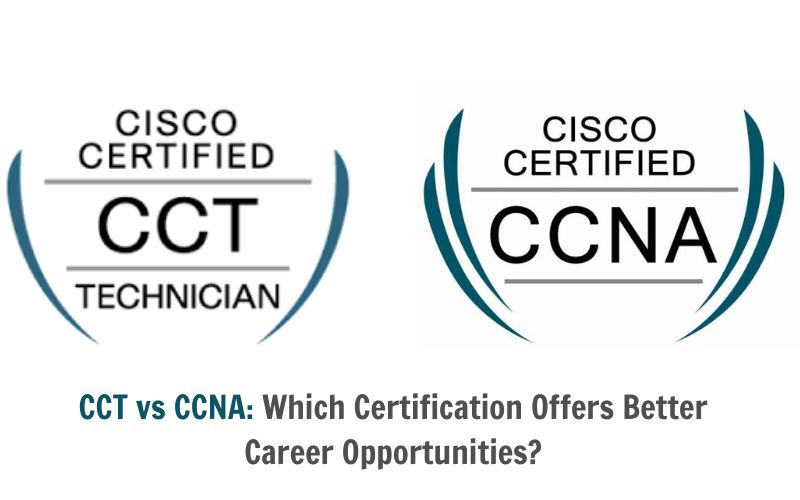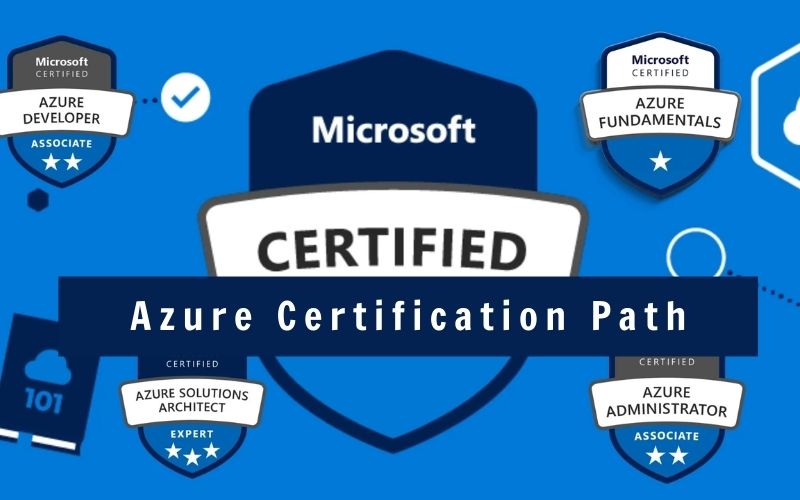Choosing the right PMP certification for a person’s experience level and professional objectives is the main purpose of this tutorial. Project Management Professional (PMP) and Certified Associate in Project Management (CAPM) qualifications, the two PMP certifications provided by PMI, are thoroughly compared in this article. IT-Exams.Net will give thorough details on the qualifications needed to qualify for each certification, the format of the test, and the advantages of earning a PMI certification. The ideal PMP certification to boost your project management profession is one you may pick with the aid of our information.
What Is PMP Certification?
Let’s first clarify what PMP certification is all about before talking about the finest PMP certification. For project management experts, the PMP certification is a widely recognized credential. A project manager may prove they have the knowledge, abilities, and experience necessary to manage projects successfully by earning this industry-recognized certification. The Project Management Body of Knowledge (PMBOK), a framework of project management procedures and practices, is the foundation upon which the certification is built.
Why Is PMP Certification Important?

A crucial component of the project management industry is PMP certification. The accreditation is widely accepted as a standard of excellence in the project management industry. This essay will examine the value of PMP certification in terms of professional growth, industry recognition, and career progression.
Industry Recognition
Industry recognition is one of the most significant benefits of PMP certification. Employers acknowledge the value of the internationally recognized certificate. Employers prefer PMP-certified professionals over non-certified individuals since the certification proves that the individual has the necessary skills and expertise to manage projects effectively. PMP certification indicates that the employee has a high level of project management competency, which is critical for project success. Industry recognition is one of the most significant benefits of PMP certification. Employers acknowledge the value of the internationally recognized certificate. Employers prefer PMP-certified professionals over non-certified individuals since the certification proves that the individual has the necessary skills and expertise to manage projects effectively. PMP certification indicates that the employee has a high level of project management competency, which is critical for project success.
Career Advancement
PMP certification assists project managers to advance in their jobs. Employers choose PMP-certified professionals because they have shown project management ability. Persons with PMP certification have a competitive edge over non-certified individuals since it demonstrates their devotion to the profession and willingness to engage in professional development. PMP certification may lead to higher salaries, promotions, and more job opportunities. It is an excellent investment for anybody interested in pursuing a career in project management.
Professional Development
PMP certification entails more than just gaining professional recognition and advancing one’s career. It is also about professional development. To qualify for the certification, individuals must have completed at least 35 hours of project management education. Individuals who finish this course will have a solid understanding of project management methodologies, strategies, and tools. Those pursuing PMP certification must also pass a difficult test that examines their comprehension and application of project management principles. This technique helps people develop critical thinking, problem-solving, and decision-making skills, all of which are necessary for effective project management.
In brief, PMP certification is required for project managers who wish to advance in their jobs. The qualification is recognized in the business, opens doors to greater employment options, and supports professional growth. The certification is an investment in one’s career that will pay off in increased income, promotions, and better work possibilities. It is an excellent investment for project management experts who wish to flourish in their business.
Best PMP Certification: PMP vs CAPM

Now that we have discussed what PMP certification is and why it is important let’s look at the best PMP certification. There are two PMP certifications offered by PMI:
Project Management Professional (PMP)
The Project Management Professional (PMP) certification is the most popular and recognized certification for experienced project managers. It requires a significant amount of project management experience and education to qualify for the exam.
To be eligible for the PMP certification, you must have either:
- A secondary degree (high school diploma, associate’s degree, or global equivalent), at least five years of project management experience, with 7,500 hours leading and directing projects, and 35 hours of project management education/training
- A four-year degree, at least three years of project management experience, with 4,500 hours leading and directing projects, and 35 hours of project management education/training
The PMP exam tests your knowledge of project management principles, processes, and best practices. It is a challenging exam that requires extensive preparation and a deep understanding of the PMBOK guide.
Certified Associate in Project Management (CAPM)
The Certified Associate in Project Management (CAPM) certification is an entry-level certification for individuals who are new to project management. It is designed to provide a basic understanding of project management principles and processes.
To be eligible for the CAPM certification, you must have:
- A secondary degree (high school diploma, associate’s degree, or global equivalent)
- 1,500 hours of project experience or 23 hours of project management education/training
The CAPM exam tests your knowledge of project management terminology, processes, and principles. It is a less challenging exam than the PMP but still requires a significant amount of preparation.
Both PMP and CAPM certifications have their benefits, but it’s essential to choose the one that aligns with your experience and career goals. Regardless of which certification you choose, obtaining a PMI certification demonstrates your commitment to the project management profession and enhances your credibility as a project manager.
Which Certification Is Right For You?

Depending on your degree of project management expertise and professional objectives, you should choose the appropriate qualification. The PMP certification is the best option if you have several years of experience as a project manager. The CAPM certification is more ideal if you are new to project management and want to understand the fundamentals.
The PMP certification needs a substantial amount of project management experience and study to qualify for the test, whereas the CAPM certification is an entry-level credential meant to offer a fundamental grasp of project management principles and practices.
Finally, it is critical to select the certification that corresponds to your experience and professional ambitions. Obtaining a PMI certification, regardless of the certification you pick, indicates your dedication to the project management profession and increases your reputation as a project manager.
How To Prepare For PMP Certification?

Preparing for PMP certification requires a significant investment of time, effort, and resources. However, with the right approach, it is possible to pass the exam on the first attempt. This article outlines four essential steps to prepare for PMP certification.
Read the PMBOK Guide
The PMP exam relies heavily on the Project Management Body of Knowledge (PMBOK) handbook. It comprises the core project management ideas, techniques, and best practices. Understanding the test content and format requires reading the PMBOK handbook. It is critical to completely study the handbook and comprehend the topics and terminology presented in each chapter.
Join a Study Group
Participating in a study group is a great approach to preparing for the PMP test. A study group allows you to work with other experts, share expertise, and discuss ideas. It is a fantastic opportunity to learn from the experiences of others, clarify concepts, and obtain useful insights. Joining a study group also gives individuals inspiration and support to help them remain on track with their study objectives.
Use PMP Practice Exams
Practice examinations are an important part of PMP exam preparation. Practice examinations imitate the actual exam atmosphere and help students become acquainted with the exam format and question kinds. They also allow you to check your knowledge and suggest areas where you need to improve. Using PMP practice exams from IT Exams may assist individuals in developing a plan for answering questions, successfully managing their time, and increasing their confidence.
Attend a PMP Boot Camp
Attending a PMP boot camp is a rigorous training program that gives a thorough understanding of the PMP test material and format. The boot camp is taught by professional teachers who employ interactive teaching methods to assist participants in understanding test ideas and terminology. Attending a boot camp allows you to learn from professionals, ask questions, and get rapid feedback. It is a wonderful technique to speed up studying and prepare for the exam in a short amount of time.
In conclusion, preparing for PMP certification requires a structured and disciplined approach. Reading the PMBOK guide, joining a study group, using practice exams, and attending a boot camp are essential steps to prepare for the exam. With adequate preparation and a positive attitude, individuals can pass the exam and achieve their professional goals in project management.
Tips For Passing The PMP Certification Exam

Passing the PMP certification exam requires preparation and strategy. Here are some tips to help you pass the exam:
Understand the PMBOK Guide
The PMBOK® Guide serves as the foundation for the PMP exam. Make use of this material and make this guide your study partner. Learn one knowledge area from the PMBOK® Guide each week. Begin with the guide and work your way up to more advanced study resources. This will improve your understanding of each topic, whereas other study aids typically repeat content and present the same issue from a different angle.
Break down the PMBOK® Guide topic areas even further and examine one process every day. This will help you create a clear approach for both daily and weekly milestones.
Consider PMP Exam Prep Workshops
If you want to study in a classroom setting or prefer more one-on-one interaction, PMP exam preparation seminars are an excellent choice. In addition to networking through a PMI® membership, these are fantastic ways to meet other aspiring project management professionals in your area. Another advantage of these seminars is that they frequently meet the 35-contact-hour requirement for applying to take the PMP certification.
Complete a number of practice questions
The vast majority of PMP exam questions are situational in nature. As a result, merely understanding the theory does not guarantee that you will be able to apply it in reality.
As you answer numerous questions, you’ll see that challenges fall into several groups. Some questions are simple and to the point, while others are longer and more detailed. There are questions about the formula’s base as well as specific instances. ITTO quizzes you on project management tools and procedures.
Make a Schedule
The curriculum serves as a guide for general preparedness. Before you begin studying, you must clearly establish your goals and determine how you will achieve them. Let’s face it: most of us find testing difficult. If you don’t have a clear local route, it’s easy to become disoriented while preparing and lose track of where you’re heading.
Participate in a PMP Training Course
PMI recommends that applicants take a PMP exam prep course. Successful PMP candidates spend an average of 35 hours or more preparing, so give yourself plenty of time before taking the exam.
FAQs

What is the passing score for the PMP certification exam?
A psychometric analysis technique that takes into consideration the difficulty level of the exam questions determines the passing score for the PMP certification exam. The passing score is not a set figure that varies significantly from exam to exam.
However, the passing score for the PMP certification test is normally about 61%, which means you must successfully answer 106 out of 175 questions. It’s vital to understand that the PMP test is graded based on a mix of the number of questions successfully answered and the complexity of those questions. As a result, it’s crucial to answer as many questions as possible, especially those designated as more critical.
How long is the PMP certification valid?
The PMP certification is valid for three years after passing the test. You must acquire 60 Professional Development Units (PDUs) over the three-year certification cycle to keep your certification. Participating in professional development activities such as training courses, webinars, conferences, and other relevant events earns PDUs.
PDUs are available in a variety of areas, including Education, Giving Back to the Profession, Working as a Practitioner, and Developing New Project Management Knowledge. Each category has a particular amount of PDUs necessary to satisfy the certification cycle’s 60 PDU requirement.
You can renew your PMP certification after obtaining the appropriate amount of PDUs by submitting an application and paying the renewal cost. PMI may also choose a percentage of certification holders for an audit to ensure they are meeting the PDU criteria. As a result, keeping precise records of all your professional development activities is critical to avoiding problems throughout the renewal process.
How many PDUs do I need to earn to maintain my PMP certification?
You need to earn 60 Professional Development Units (PDUs) during the three-year certification cycle for PMP renewal. PDUs are earned by participating in professional development activities such as attending training courses, webinars, conferences, and other relevant events.
Education, Giving Back to the Profession, Working as a Practitioner, and Creating New Project Management Knowledge are among the PDU categories. Each category has a particular amount of PDUs necessary to satisfy the certification cycle’s 60 PDU requirement.
Can I take the PMP certification exam online?
Yes, with Pearson VUE’s online proctoring service, you may take the PMP certification test online. In response to the COVID-19 epidemic, PMI established this online testing alternative to enable applicants with a secure and convenient method to take the exam from the comfort of their own homes or workplace.
You must have a good internet connection, a camera, and a peaceful, distraction-free area to take the PMP test online. You must also download the Pearson VUE online proctoring software, which allows a remote proctor to watch your exam session in real-time and assure exam security.
How long does it take to prepare for the PMP certification exam?
The length of time it takes to prepare for the PMP certification test depends on a number of factors, including your previous project management experience, the amount of time you can devote to studying, and your familiarity with the exam content.
PMI suggests that applicants devote at least 35 hours of study time to the test preparation. Many applicants, however, discover that they require a substantially longer time to be totally prepared.
Some applicants may need many months to prepare for the test, while others may just need a few weeks or even a few days if they have extensive prior project management experience and expertise.
Final Words
PMP certification is an essential certification for project management professionals. It demonstrates that a project manager has the knowledge, skills, and experience to manage projects successfully. There are two PMP certifications offered by PMI: Project Management Professional (PMP) and Certified Associate in Project Management (CAPM). If you are an experienced project manager with several years of experience, then PMP certification is the right certification for you. However, if you are new to project management and wish to understand the fundamentals of project management, the CAPM certification is for you. Preparing for the PMP certification test involves time, effort, and commitment. You may pick the best PMP Certification for you and maximize your chances of passing the test and achieving your PMP certification by following the guidelines provided in this article. I hope you found this to be the best PMP certification programs guide you’ve ever read! Best wishes on your certification path!
[Sassy_Social_Share]


